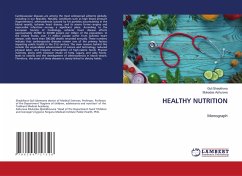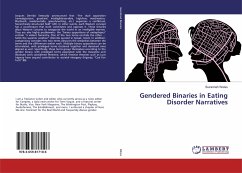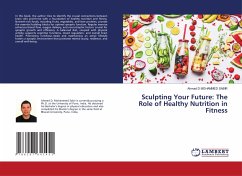
Healthy wt. children who want to lose wt.:prevalence/ eating behavior
Versandkostenfrei!
Versandfertig in 6-10 Tagen
24,99 €
inkl. MwSt.

PAYBACK Punkte
12 °P sammeln!
The western culture, and, increasingly, many other parts of the world, depicts the "thin body" as a standard ideal of beauty. This has increased weight-loss desires, especially among adolescents and school-children, and set a new imagined target that these two vulnerable groups strive to achieve. This study divided weight-related concerns into three groups, according to their appropriateness with each child's BMI. The three groups are those with excessive concerns, appropriate concerns and insufficient concerns. The main focus was the children in the excessive weight-related concerns group. Th...
The western culture, and, increasingly, many other parts of the world, depicts the "thin body" as a standard ideal of beauty. This has increased weight-loss desires, especially among adolescents and school-children, and set a new imagined target that these two vulnerable groups strive to achieve. This study divided weight-related concerns into three groups, according to their appropriateness with each child's BMI. The three groups are those with excessive concerns, appropriate concerns and insufficient concerns. The main focus was the children in the excessive weight-related concerns group. The study looked at how they translated these concern into dieting practices and behaviours. 9,755 school children (year 8 (age 12-13) and year 10 (age 14-15)) from across the United Kingdom and Wales. Of those, 1,133 were healthy- weight children. This study found that gender and age had an influence on weight-loss desires and dietary practices among children. It also found that weight loss desires play a role in determining some dietary behaviours, such as dairy avoidance or physical activity levels- among school children, especially healthy weight ones.












